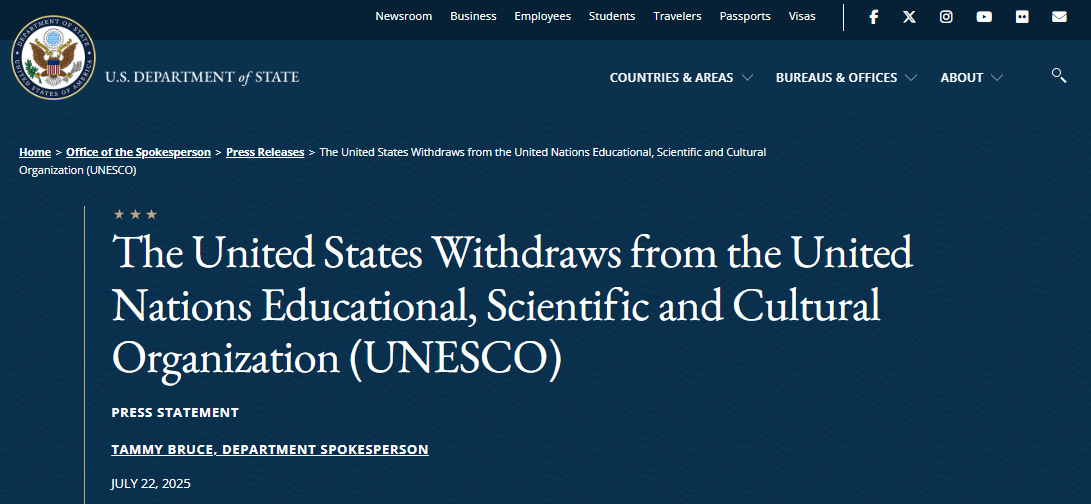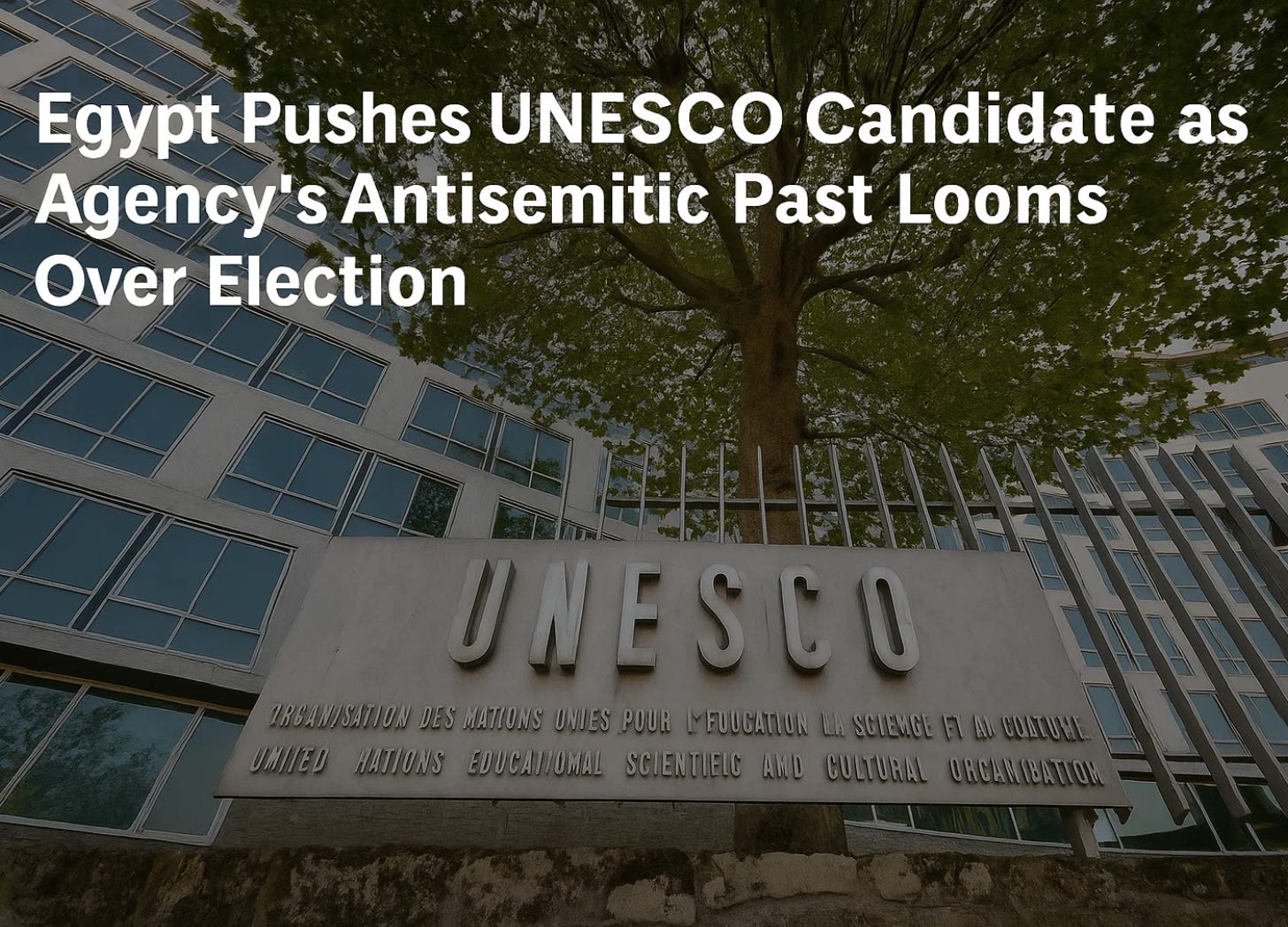Egypt Pushes UNESCO Candidate as Agency's Antisemitic Past Looms Over Election
Egypt mobilizes final support for its UNESCO candidate ahead of October's election—but the vote unfolds against an agency plagued by accusations of antisemitic bias
With less than a month before UNESCO's Executive Board selects its next director-general, Egypt is making a final push for Khaled El-Enany's candidacy—but the election unfolds against the backdrop of an organization that has faced sustained criticism for what watchdog groups and member nations have characterized as systematic bias against Israel and Jewish heritage sites.
A Pattern of Controversial Incidents & Resolutions
In January 2014, UNESCO cancelled an exhibit entitled "The People, The Book, the Land: The 3,500-year relationship between the Jewish people and the land of Israel" just days before its scheduled opening at UNESCO's Paris headquarters. The exhibit, created by the Simon Wiesenthal Center and co-sponsored by Israel, Canada, and Montenegro, was cancelled after Arab states protested that it would harm peace negotiations.
In 2016, critics say UNESCO began systematically denying Jewish and Christian connections to Jerusalem's holy sites through a series of controversial resolutions. The most contentious resolution, passed in October 2016, referred to the Temple Mount exclusively by its Arabic name "Haram al-Sharif" while failing to acknowledge Jewish ties to the site—home to the Second Jewish Temple destroyed in 70 AD.
The resolution, which passed 10-2 with 8 abstentions, sparked international condemnation. Then-Democratic presidential candidate Hillary Clinton called it "disappointing and wrong," while Israel's UNESCO ambassador Carmel Shama-Hacohen denounced it as "against historical truth."
UN Watch, a Geneva-based human rights organization that has extensively documented UNESCO's actions, found a pattern of diminishing support for such resolutions. According to their analysis, Palestinian-backed anti-Israel resolutions saw their support drop from 33 votes in April 2016 to 24 in October 2016, and down to just 22 by May 2017
The Exodus of Major Powers
The controversial resolutions proved to be the final straw for key UNESCO members. The United States and Israel, who had already suspended funding to the organization in 2011 after Palestinian membership was approved, announced their complete withdrawal in October 2017, citing what they called continuing anti-Israel bias. The withdrawal became official on December 31, 2018, dealing a significant blow to UNESCO's finances and credibility.
However, the Biden administration reversed course and rejoined UNESCO in July 2023, citing concerns about China's growing influence in the organization and committing to pay back $619 million in arrears.
The U.S. membership proved short-lived. In July 2025, President Trump announced America's withdrawal from UNESCO for the second time, calling it "woke" and "divisive." State Department spokesperson Tammy Bruce stated that continued participation was "not in the national interest." The withdrawal will take effect on December 31, 2026.

Educational Incitement Concerns
Beyond the Jerusalem resolutions, UNESCO has faced criticism for failing to address antisemitic content in educational materials within its sphere of influence. UNESCO has been cooperating with UNRWA for decades to advance various educational initiatives.
A February 2017 UN Watch report documented over 40 cases of UNRWA teachers and staff celebrating terrorist attacks against Israelis, posting Hitler imagery, and promoting violence against Jews on social media platforms. The report found UNRWA employees "celebrating the terrorist kidnapping of Israeli teenagers, cheering rockets being fired at Israeli civilian centers, endorsing various forms of violence, erasing Israel from the map, praising Hitler and posting his photo, and posting overtly antisemitic videos, caricatures, and statements.
The issues have continued to escalate. A September 17, 2025 UN Watch report found that Hamas operatives occupied senior educational positions within UNRWA despite their open affiliations with the terror organization, with the agency's knowledge and apparent tolerance of these appointments.
Antisemitic Legacy Haunts Leadership Race
As UNESCO's Executive Board prepares to vote in October, the organization's history of antisemitic resolutions and tolerance for educational incitement remains an unresolved stain on its reputation. Whoever wins the director-general position will inherit an agency that has lost major powers' trust and funding due to its systematic bias against Jewish heritage and its failure to combat antisemitism within its educational mandate.



